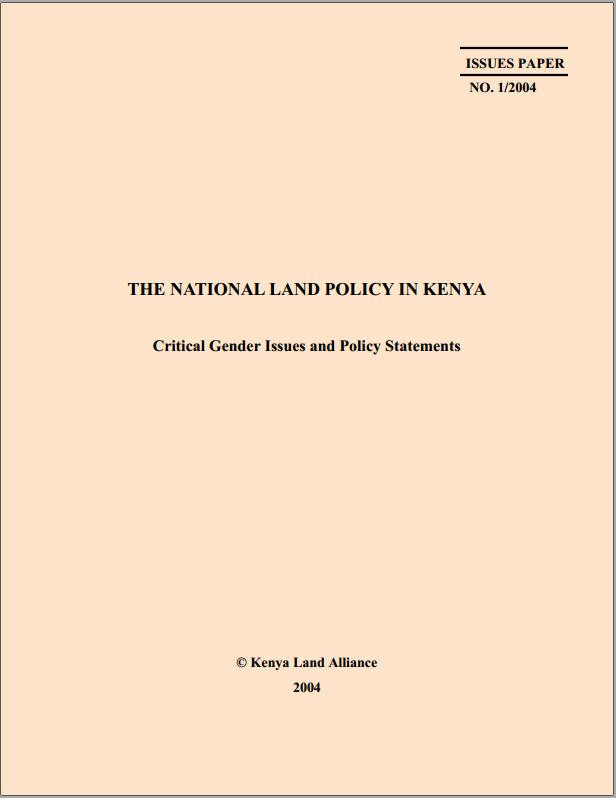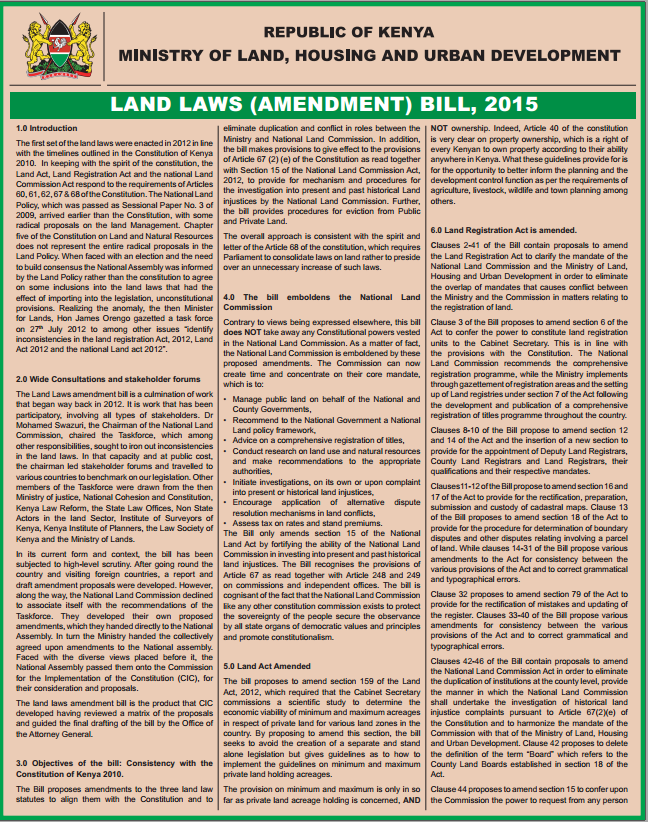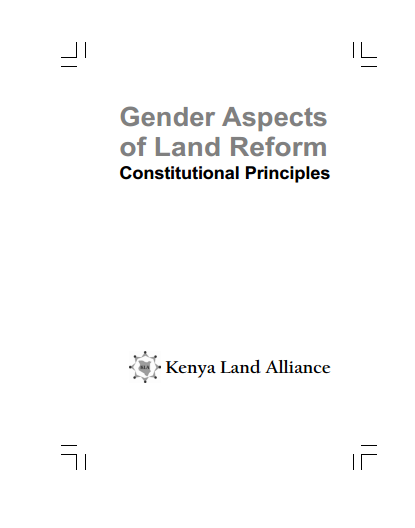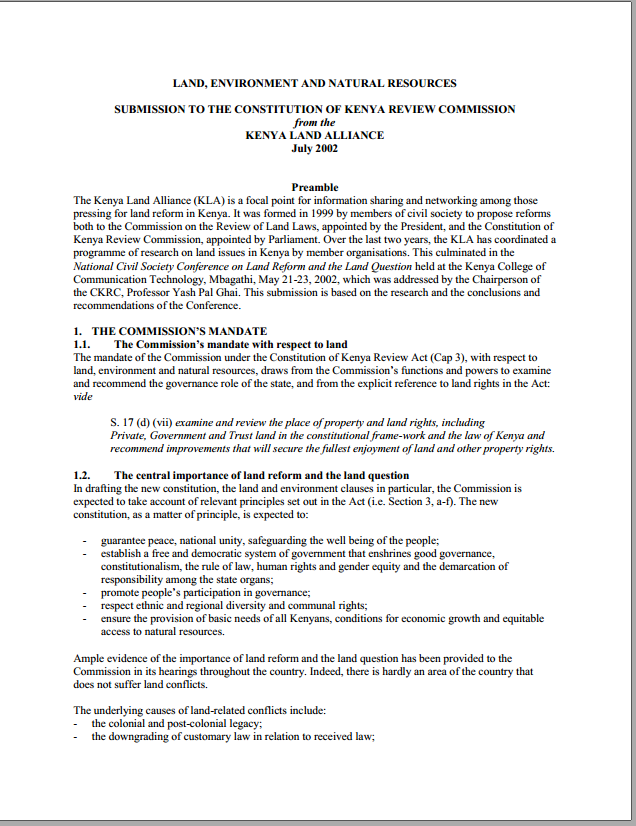The National Land Policy in Kenya Critical Gender Issues and Policy Statements
The purpose of this Issues Paper is to move the debate and stimulate discussion of issues relevant to women’s land rights and social security beyond the unfulfilled demands for gender responsive land policies and land legal framework. It is based on lessons learned from various research findings, Kenya Land Alliance experience and discussions with colleagues with whom we work with in various capacities on land policy and law reforms in Kenya and others parts of Africa.












